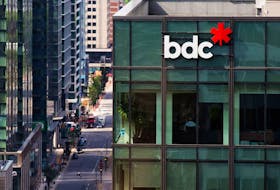The Canadian food service sector laid off 800,000 people in March as the coronavirus crisis forced shutdowns across the country, according to a survey released on Thursday.
Restaurants Canada, the industry association behind the survey, is now warning that nearly 30 per cent of restaurants will not reopen if the situation continues unchanged for another month.
“There’s a lot of people who just won’t make it through May 1 or June 1,” said David Lefebvre, the association’s vice-president for federal affairs.
The 800,000 out-of-work employees are about two-thirds of the country’s entire food-service labour force, which totals some 1.2 million people. Many more workers have likely been let go since the survey was conducted last week: 70 per cent of respondents said they were planning more layoffs in the near future.
A growing chorus of concerned restaurateurs have formed a coalition to pressure the federal government to do more, arguing that the 75-per-cent wage subsidy and $40,000 loans for small businesses won’t be enough to prevent damage that could take a generation to recover from.
Save Hospitality, a group of more than 1,000 restaurant owners, said it is meeting with political officials to develop a restaurant-specific stimulus plan, since wage subsidies won’t be able to prop up the hospitality sector amid blanket bans on social gatherings that stop most restaurants from operating. The $40,000 no-interest government loans will barely cover one or two month’s rent, the group said.
“Some of our rents are over $100,000 a month,” said Andrew Oliver, one of the Save Hospitality leaders and chief executive of Oliver & Bonacini Hospitality Inc., which has 26 locations in Canada, including the Bay Street institution Canoe and several other prominent downtown Toronto restaurants.
Food-service revenues are expected to drop by $20 billion during the second quarter of 2020, Restaurants Canada said. Some restaurants continue to offer takeout and delivery, but those options for most are the equivalent of “putting on a Band-Aid when you’ve lost your leg,” said Oliver, whose business has lost 99 per cent of its revenue despite offering take-out at a few locations.
“This has been one of the most devastating times of my life. I had to lay off thousands of people, ruin thousands of dreams,” he said. “One of the hardest things is I’ve had a dozen calls or text messages, people reaching out, asking me to take the keys to their place because they’re going to give up.”
The Restaurants Canada survey was conducted from March 25 to March 29 with 655 restaurateurs who operate 13,300 locations in total. It found that 10 per cent of the country’s 97,500 restaurants, bars and cafés have already permanently closed. Another 18 per cent said they will be forced to close for good within a month if current conditions continue.
“In the next 30 days, you have one in three restaurants boarded up. Think about that for a minute,” Oliver said. “If all of our costs continue to build with zero revenues for three months … when they come up with this report again, we might have it where one in 10 restaurants think they will survive. Imagine what that looks like for the economy.”
I had to lay off thousands of people, ruin thousands of dreams
Save Hospitality wants forgivable government loans to keep businesses alive through the coronavirus crisis and incentivize them to reopen and hire back employees as soon as it’s safe to do so. The group is suggesting the loans should count for 10 per cent of a restaurant’s annual revenue, and could be provided by the banks, but funded and guaranteed by the federal government.
“Make that investment for us so that we can continue to pay you guys the tens of billions of dollars in taxes that we contribute to our communities,” Oliver said.
Federal programs to support laid-off workers and even calls to defer rent payments and property taxes are only stop-gap measures, Oliver said. If the only solution is to delay paying expenses, he said business owners — in an already low-margin industry — will emerge from the crisis with crippling debt, leading to a much higher vacancy rate and a steep drop in market rents.
Financial Post
• Email: [email protected] | Twitter: jakeedmiston
Copyright Postmedia Network Inc., 2020







